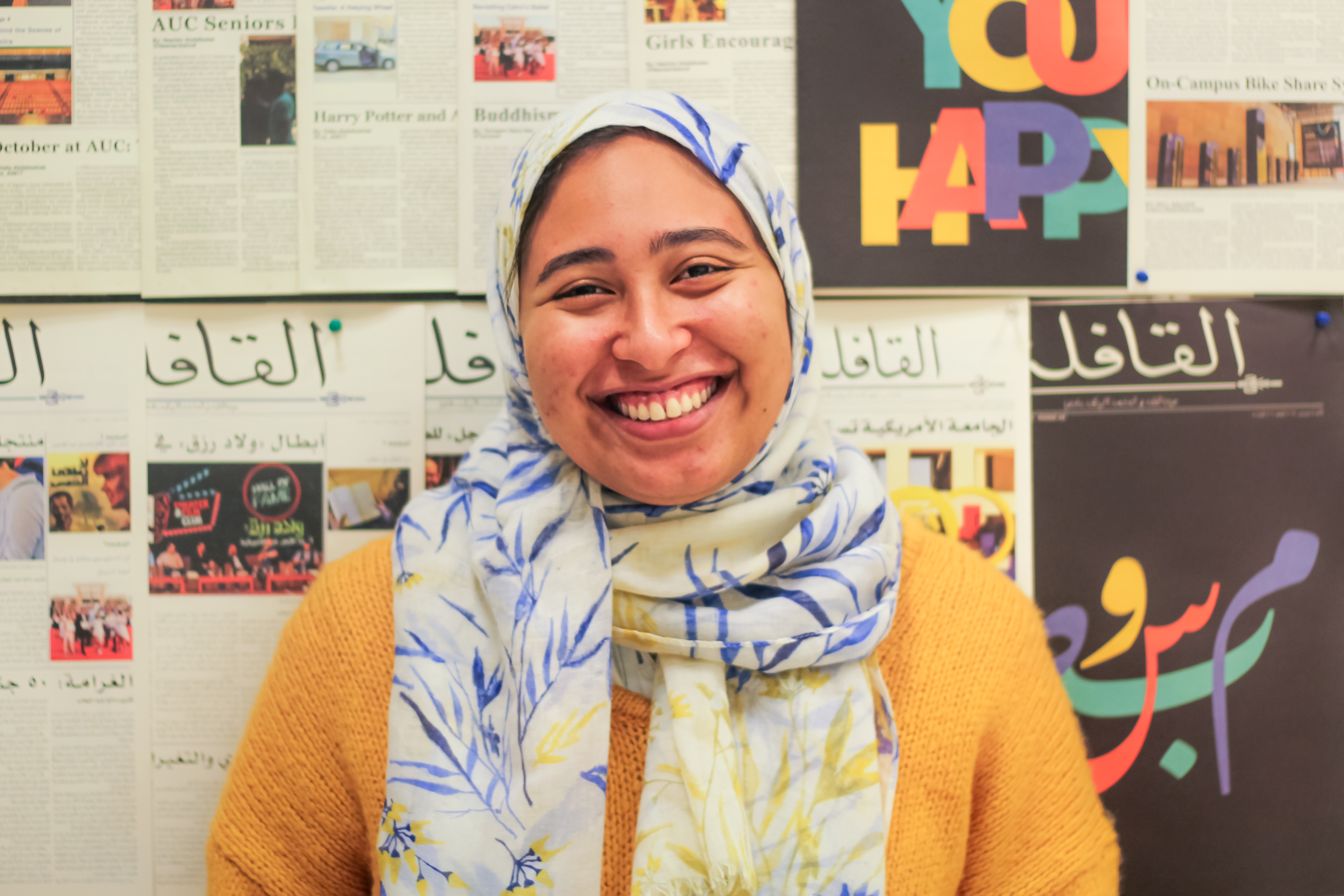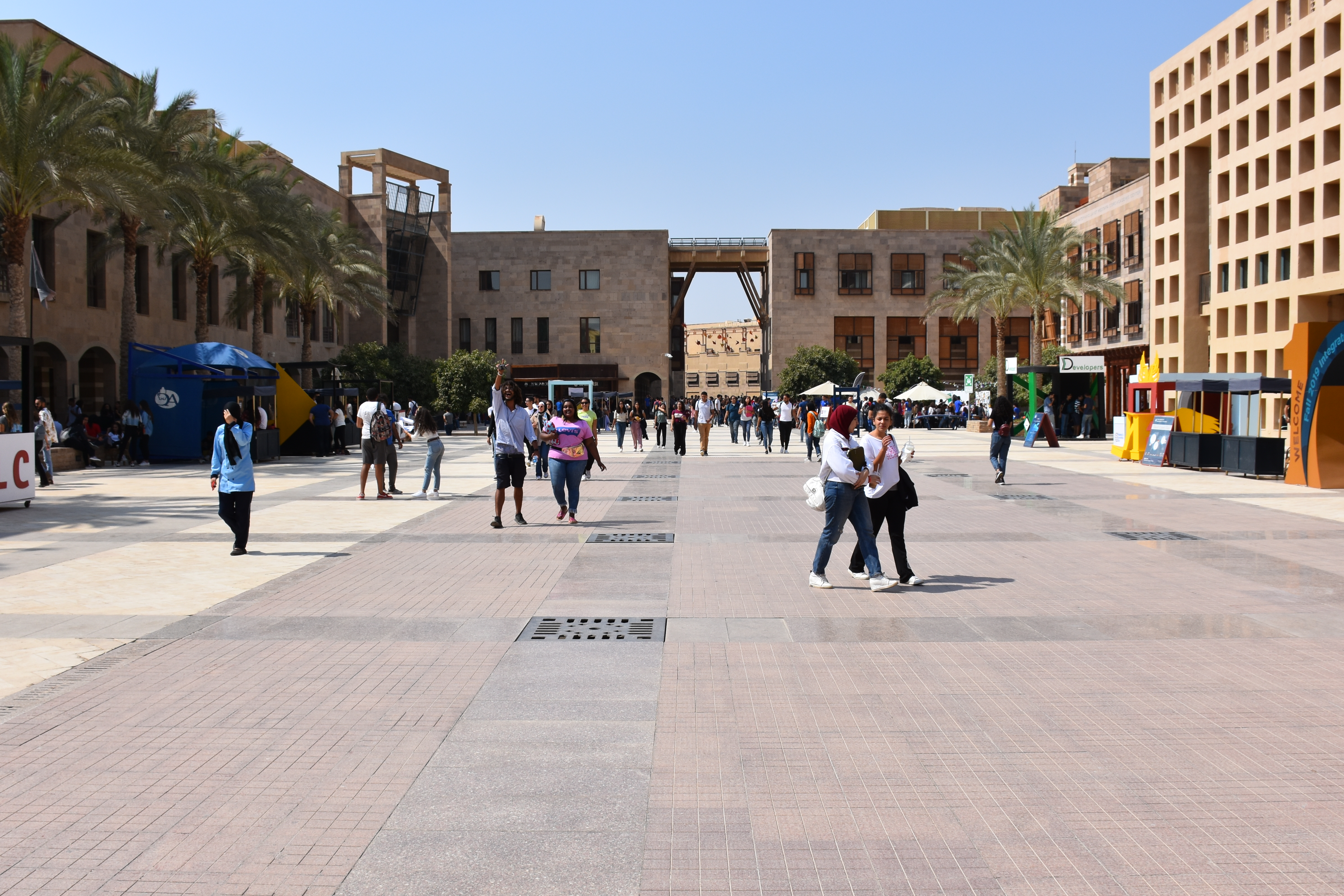Can Aoun’s Appointment End Lebanon’s Legacy of Violence?
By: Norhan Amin
@NorhanAAmin
Fifteen years after the end of the Lebanese Civil War, contemporary society is still reeling from the violence and trauma of the conflict visible in different forms.
Nikolas Kosmatopoulos, Assistant Professor of Politics and Anthropology at the American University of Beirut (AUB), examined this legacy during his talk at AUC titled “Master Peace, The Politics and Policies of Violence as Di erence in Postwar Lebanon”.
“Di erent places are discussing violence in di erent ways,” Kosmatopoulos said, referring to the moralization of certain situations of political violence.
He explained how Lebanon has witnessed di erent types of violence over the years by giving the example of privatizing the coastline, where the government took away land from the shermen working on the coast line in order to build projects and carry out renovations.
The privatization, which started before the outbreak of the war, gave militias and parties the chance to expropriate the properties later on.
This system of exploitation underscores only one brand of violence the Lebanese Civil War has produced.
Another type of violence Kosmatopoulos discussed is political violence, which was ongoing between people belonging to di erent sects within the country.
An explicitly heterogeneous society has seen warring ethnic groups tear the country apart in pursuit of political and social dominance.
Kosmatopoulos described the acts of political violence during the Lebanese War as a moral disgrace to humanity, likening it to the Holocaust.
However, the e ects of the civil war, although apparent today, may not constitute a legacy of political violence in Lebanon.
“I think the tension died down after the election of Michel Aoun as President of Lebanon,” Adjunct Faculty at the Department of Political Science Mustapha Al- Sayyid told The Caravan.
Al-Sayyid added that years after the civil war, the Lebanese people are not as a ected by the violence as they were before.
Even though political violence has in uenced the Lebanese greatly, the policies promised by recently elected Michel Aoun is pacifying the people as well as Lebanon’s diplomatic ties with other countries.
In addition, there is the belief that there will no longer be much tension between the di erent sects of Lebanon, since they have generally agreed on the changes happening along political lines.
“Each community is allotted a percentage of posts in the government, army, etc. and they nd it convenient,” Al-Sayyid added.
Yet, he does not attribute any ongoing tension in Lebanon to the civil war.
“If there is any tension, it is not because of the wounds of the civil war, but because of the incompetence of the ruling groups and the actions of groups like Hezbollah,” Al-Sayyid told The Caravan.
Kosmatopoulos’ talk approached the issue from a di erent perspective.
“A new eld of professionals, at the NGO level are taking it upon themselves to try and create peace,” he explained.
He introduced the theory called the Logic of Redemption, which explains how victims of violence are invited to redeem themselves from aggression.
This theory focuses on the people’s morals while setting aside all other factors.
This theory, evolving out of a brand of social constructivism, focuses on the normative impact of morals – adding an ideological dimension to the Civil War.
Understanding the rationality, and therefore the morality, of groups ,such as the Islamic State (IS) and
Hezbollah, make it easier for one to position their own stance in relation to the horrors of the War.
Kosmatopoulos tied this to a new theory of crisis prevention and peacemaking, called ‘Master Peace’, as an extension the practices of the Logic of Redemption.
This approach is being applied by experts in order to reach e ective reconciliation amongst victims.
He compared this approach to attempts by Scandinavian peacemakers in the 1990s, which, according to him, were not well conceived.
The peacemakers tried to establish peace between the victims of violence; however, it did not succeed due to the lack of an organization, like the United Nations (UN) negotiating this truce.
However, Kosmatopoulos found that no political or economic compensation was made to the victims of inequality.
“Through this, there is a continuity of war against the commons,” he said.
The silence on such issues only serves to further entrench wounds and legitimate the violence perpetrated by the warring parties.
“There is a growing cultural difference that is incompatible with a nation-state,” Kosmatopoulos quoted Edward Said to refer to the con icts risen in postwar Lebanon.


